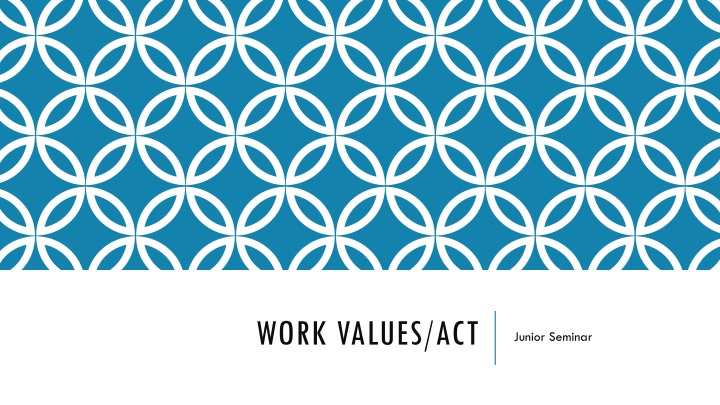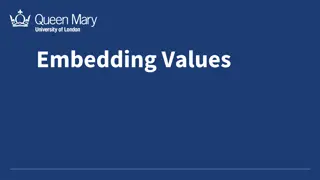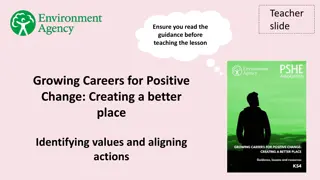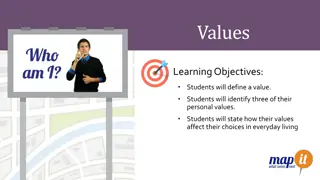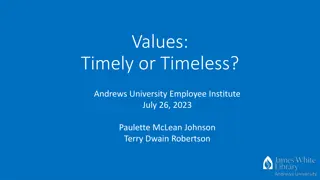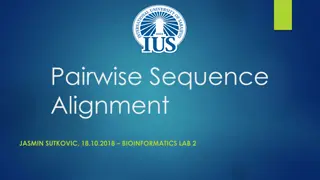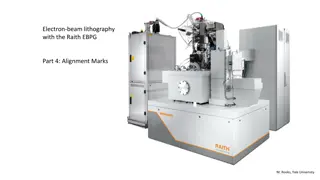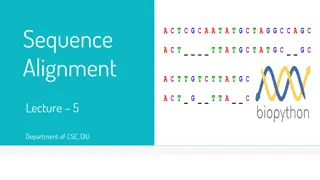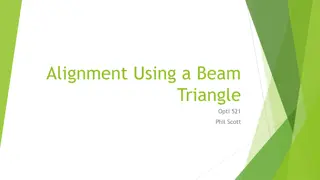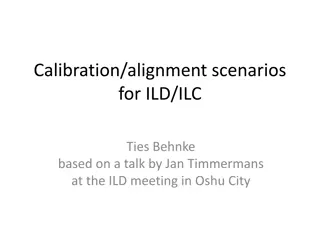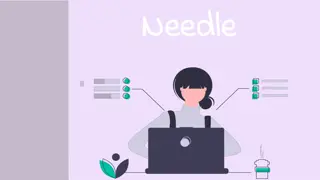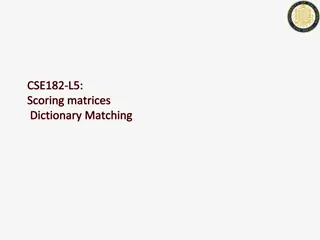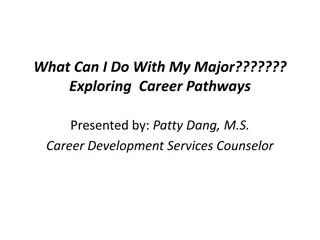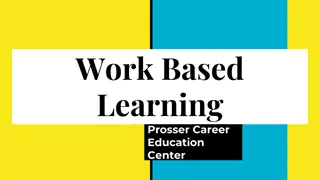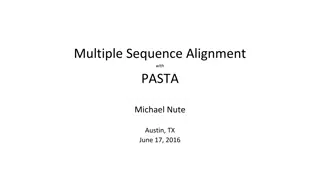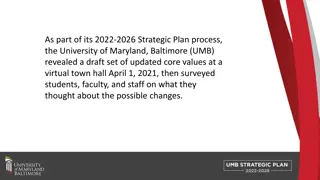Exploring Work Values and Achieving Career Alignment
Assessing work values to determine career fit, understanding the importance of aligning values with career choices, reflecting on personal values through various activities, and gathering insights to enhance self-awareness and career decisions. Tips for improving ACT scores and strategies for the ACT general test and English section are also included.
Download Presentation

Please find below an Image/Link to download the presentation.
The content on the website is provided AS IS for your information and personal use only. It may not be sold, licensed, or shared on other websites without obtaining consent from the author.If you encounter any issues during the download, it is possible that the publisher has removed the file from their server.
You are allowed to download the files provided on this website for personal or commercial use, subject to the condition that they are used lawfully. All files are the property of their respective owners.
The content on the website is provided AS IS for your information and personal use only. It may not be sold, licensed, or shared on other websites without obtaining consent from the author.
E N D
Presentation Transcript
WORK VALUES/ACT Junior Seminar
WORK VALUES Assessing your values can help with determining if a career will be a good fit for you. It is also important to note that not all values can or need to be fulfilled by your career. Many needs can be met outside of the workplace when your career does not have an outlet for everything of value to you.
WORK VALUES What activities bring meaning & purpose to your life? How do you define success? Think about a time when you felt especially motivated to complete something (life, job, school, etc). What made you feel that way? Complete Work Values Inventory
WORK VALUES Achievement Independence Recognition Relationships Support Working Conditions https://www.onetonline.org/find/descriptor/browse/Work_V alues/
WORK VALUES What was it like to participate in this activity? Do you feel the information from this work values inventory reflects you? Explain why or why not. What did you learn new about yourself? Have you considered these aspects prior to completing this exercise? Hang on to these handouts they are yours to keep. May need to reference again in the future
ACT GENERAL TEST TIPS #1: Don t cram #2: Become familiar with the test structure before you take the test. #3: Make an educated guess #4: Budget your time. #5: Easy questions first. #6: Practice, practice, practice. E-prep
ACT ENGLISH TIPS #1: Choose the Most Concise Answer ACT English questions are looking for answers that result in the most straightforward, logical sentence structure. You should try to find the choice that provides all the necessary information for the sentence to make grammatical sense and nothing extra. #2: Read the Paragraph First A good plan of attack for the ACT English section is to read the whole paragraph that contains the sentence you ll be revising before looking at the answer choices. This will give you some context for your choices and give you a better grasp on the structure of the sentence and how you might need to change it. With this strategy, you ll reduce the number of errors caused by careless misreading.
ENGLISH TIPS CONT. #3: Be Careful With No Change Answers On questions for ACT English that ask you to choose the answer that makes a sentence grammatically correct, you will have the option to pick no change . This is a dangerous choice because if you aren t aware of more obscure grammar rules, you might be tempted to choose it on some questions where the sentence actually can be improved. It s really important to double check all the other answers before you settle on no change as the correct choice. However, keep in mind that "no change" really is the answer around 25 - 30% of the time. It's an option, so don't second guess yourself if you're relatively certain there really isn't an issue. Read the sentence through with each of the possible suggested changes before bubbling in no change to ensure you re making the right call.
ACT MATH TIPS #4: Pay Attention to Diagrams The ACT Math section will often provide you with diagrams of figures that describe the problem you re trying to answer. It s important to pay attention to these figures, because they will give you clues about which answer choices are the most logical. If a problem is asking you to figure out an angle, for example, and some of the choices are acute while others are obtuse, you ll be able to eliminate at least a couple of answers just by looking at the diagram. If it doesn t seem like an answer is possible based on the visual aid you are given, it s usually safe to cross it out.
MATH TIPS CONT. #5: Plug in the Answer A really important strategy that will help you to be sure you have the correct answer on math problems is to plug in the answer choices. If a question asks you to solve for x, plug the answer choices back into the original equation and see which one works - you don t even need to really solve it. This can be more time consuming than just solving the equation if you already know how to do that, so only use it as a last resort if you're stumped.
ACT READING TIPS #6: Start with Your Strengths The ACT Reading section is always structured the same way with four topic areas that each correspond to a passage or pair of passages. The topics are as follows: Prose fiction/literary narrative Social science Humanities Natural science To make sure you re getting the most out of this section, you should start with reading the passage(s) that correspond to the topic area in which you are most comfortable. This might simply mean starting with subject matter that is most interesting to you and will make for a quicker read. You ll get the questions that are easiest for you out of the way first and won t risk running out of time before you have a chance to answer them.
READING TIPS CONT. #7: Skim the Passages There s a lot of time pressure on the ACT Reading section, so you should attempt to read the passages as efficiently as possible. For some students, it might be manageable to read passages normally and still have enough time to finish the section, but you have to be a really quick and thorough reader. The best strategy for most people is to skim the passages instead. In order to skim effectively, you should read the introduction and conclusion paragraphs and the first and last sentences of every body paragraph. This will give you a good overview of the main ideas and allow you to answer most main point questions about the passage. When you get to questions about details, you can read specific parts of the passage over again if necessary.
ACT SCIENCE TIPS #8: Do the Conflicting Viewpoints Section Last The conflicting viewpoints section on ACT Science is usually the most time consuming for students. In case you re not familiar with it, this part of the section asks you to read two or three passages that detail different viewpoints on a scientific issue. You'll then answer questions about these viewpoints and how they relate to one another. Since this is more reading-intensive and can eat up a lot of time, it s best to save it for last so that you don t end up missing other questions later on in the section that will be quicker and easier for you to answer.
SCIENCE TIPS CONT. #9: Rely on the Visuals The ACT Science section hits you with a lot of complicated terminology and unfamiliar facts that make it seem overwhelming. The best policy when faced with all this information is to ignore it and go straight for the graphs, which will provide enough information for you to answer the majority of the questions you re faced with. Most the information you re given is just extra stuff thrown in there to make this section seem more difficult than it is. ACT Science is more about logical reasoning and data interpretation than actually knowing any science, so if you can read the graphs you will be fine!
ACT ESSAY TIP The writing test is optional, however, some schools require it for admission #10: Write a Great Intro and Conclusion It s likely that the essay graders will read your introduction and conclusion more closely than the rest of your essay. If they can find your thesis easily, you're already on the right track to earning a great score. As long as you have body paragraphs that make sense and support the points outlined in your thesis, graders will likely give you at least a 4 in the Organization and Ideas and Analysis domains. You'll also need to write a conclusion paragraph that shows a strong understanding of how all your points relate to one another and restates your thesis. If you can demonstrate basic knowledge of how to logically structure an essay and stay on topic, you should be good to go.
OVERALL ACT TIPS #11: Skip Hard Questions On the ACT, time pressure is a very real problem for many students. To avoid losing points, you need to learn to skip questions that are giving you trouble before they take up too much of your time. Too much of your time means something different for each section: English: more than 30 seconds Math: more than a minute Reading: more than 45 seconds Science: more than 45 seconds As a rule of thumb, if you feel like you re not any closer to figuring out a question after about 30 seconds of looking at it, you should move on. Just circle the question so it s easy to spot when you want to come back to it later. Make a quick pass through the whole section, and answer all the easy questions first so you don t miss points by running out of time before you get through everything.
OVERALL TIPS CONT. #12: Use Process of Elimination For every section of the ACT, use process of elimination as your main strategy for attacking tough or confusing questions. This ties into the fundamental rule of ACT reading, which says that for every question there is only one completely correct answer, and the rest can be eliminated based on evidence in the passage. Process of elimination is more foolproof than trying to pick out the correct answer from the pack. Look for reasons to get rid of choices rather than reasons why they might work. This will help you be more picky about which answer you bubble in and will prevent you from thinking that more than one answer might be correct. If there s even one tiny thing out of place in an answer choice, get rid of it!
OVERALL TIPS CONT. #13: Bubble at the End, and Fill in Every Bubble You can save time on the ACT by waiting until the end of a section to bubble in your answers. This cuts down on your time per question because you avoid the process of going back and forth between your test booklet and answer sheet. It s more efficient to circle the answers you choose in your test booklet and then fill them in all at once later. Before using this tip, make sure that you can reliably finish the section with at least 3-5 minutes to spare! Don't risk running into a situation where you don t have enough time to bubble in your answers even though you ve gone through all the questions. Also, there is no penalty for guessing on the ACT, so you should fill in every bubble! An incorrect answer and an unanswered question both have the same impact on your raw score.
OVERALL TIPS CONT. #14: Stay Calm The most important thing to remember during the test is to keep a cool head. Especially given the time pressure, students who suffer from test anxiety can become overwhelmed if they have to skip a few questions. Don t let this happen to you! Keep moving forward, and answer whatever you can. You may find questions that initially seemed impossible are much easier when you come back to them.
OTHER ACT INFO ACT
AVERAGE ACT RANGE College ETSU UT-Knoxville Milligan College Berea College Appalachian State University King University 50% ACT range 19-26 24-30 23-26 22-27 23-27 18-26 Shouldn t exclude you from applying Middle 50% range: 25% students score below and 25% students score above the listed range (collegescorecard.ed.gov)
LEARNING SUPPORT Minimum ACT subscores English: 18 Reading: 19 Math: 19 May prevent you from taking many courses and potentially from being able to pursue your major immediately upon entering college Each Learning Support course may cost more money.
SCHOLARSHIPS Hope (Lottery) Scholarship: must have 21 ACT or 3.0 GPA in high school AWARD AMOUNTS FOR THE TENNESSEE HOPE SCHOLARSHIP For entering freshmen beginning with fall 2015 and thereafter Four-Year Institutions and two-year institutions with on-campus housing: Up to $1,750 per full-time enrollment semester as a freshmen and sophomore; then up to $2,250 per full-time enrollment semester as a junior and senior Two-Year Institutions: Up to $1,500 per full-time enrollment semester as a freshman and sophomore
SCHOLARSHIPS CONT. TENNESSEE HOPE RENEWAL CRITERIA The student must have a minimum 2.75 cumulative GPA at the end of the semester in which the student attempted 24 and 48 semester hours. The student must have a minimum 3.0 cumulative GPA at the end of the semester in which the student attempted 72 and 96 semester hours.
SCHOLARSHIPS CONT. ETSU Academic Performance Scholarship UT Volunteer Scholarship 22 ACT and 4.0 GPA: $2,000/year 28-29 ACT and 3.8 GPA: $3,000/year 25 ACT and 3.5 GPA: $2,000/year 30-33 ACT and 3.8 GPA: $5,000/year 26 ACT and 3.5 GPA: $3,000/year 34-36 ACT and 3.8 GPA: $8,000/year 27 ACT and 3.5 GPA: $4,000/year 30 ACT and 3.9 GPA: $5,000/year (must maintain 3.5 GPA to keep APS) (must maintain 3.0 GPA to keep Volunteer Scholarship) Scholarships are never guaranteed. You have to work to maintain them each year. That s why it s important to make good grades! If you complete the fall Bridge requirements (and have the necessary ACT and GPA), you will be eligible for the APS scholarships at ETSU.
SPRING ACT TEST DATES Test Date Registration Deadline Late Deadline (Fee Required) Dec 14, 2019 Nov 8, 2019 Nov 22, 2019 Feb 8, 2020 Jan 10, 2020 Jan 17, 2020 Apr 4, 2020 Feb 28, 2020 Mar 13, 2020 June 13, 2020 May 8, 2020 May 22, 2020 July 18, 2020 June 19, 2020 June 26, 2020 During your Junior year and in the summer after your Junior year are the best times to take the ACT. You can still take the ACT in your Senior year, but you may miss out on deadlines for specific scholarships and early admission deadlines. Go into your Senior year with a game plan and try not to have plans contingent on you taking the ACT again in your Senior year.
ACT PREP RESOURCES ePrep.com All of our Upward Bound students have the opportunity to sign up for ePrep, an online ACT prep service. Once enrolled in ePrep, all of our students can take up to 3 practice tests, and once finished with each section or test, each question is answered and explained in a video. Once enrolled in ePrep, each student will have access to ePrep for 12 months. If you want to enroll in ePrep, please email or call Tiffany Brown (423-439-4474 or ztnb12@etsu.edu). ACT Waiver All Upward Bound students are offered up to 2 ACT waivers in their junior and senior years. If you need a waiver, please ask during a school visit. ACT Study Guide www.act.org/the-act/testprep (free for download) - Ask at a school visit and we can print you a physical copy if you prefer.
COMMON MISTAKES Do Not: Register for the ACT and then not to show up Register for the ACT and show up on the wrong test date Register for the ACT and not know your testing location or register at a location which is not convenient to you Register for the ACT and forget to complete additional requirements upload your ID photo to the ACT website print test confirmation page take both your ID and confirmation with you to your testing facility on the day of your test
OTHER NOTES Fee waivers can be used during the late registration period, but students must pay the late fee out-of-pocket. If you use a fee waiver and do not attend the appropriate test date, you cannot transfer it to a different test date. You will lose the use of that waiver and have to pay for the next one out of pocket. Bring your ID, calculator, and pencils. These will not be provided for you. Many schools offer 1 free ACT attempt each year. Check with your school counselor to register for it. You will not need to use a waiver from Upward Bound for this ACT attempt.
DISMISSAL Riding the bus? Loading will be near University High like last session Waiting to be picked up? See Julie outside of Burleson Driving yourself? You can head to your car
